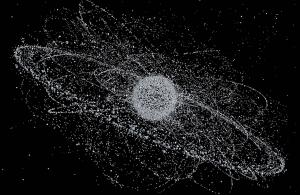National Space Society, the American Institute of Aeronautics & Astronautics, and the Secure World Foundation Seek More Funding For Office of Space Commerce
I hope this year brings us a step closer to a sustainable space environment. That stability will enable us to use the vast resources of space for the dramatic betterment of humanity...”
— Anita Gale, CEO of the National Space Society
WASHINGTON, D.C., US, September 12, 2022 /EINPresswire.com/ -- The National Space Society (NSS), American Institute of Aeronautics & Astronautics (AIAA), and Secure World Foundation (SWF) recognize the importance of orbital debris management and advocate for the long-term sustainability of the orbital environment. The NSS is a D.C.-based, international non-profit that is the preeminent citizen’s voice on
space exploration, development, and settlement. It publishes the award-winning Ad Astra magazine and leads U.S. space advocacy efforts, including for orbital debris policy. The AIAA is the world’s largest technical society dedicated to the global aerospace profession. With over 30,000 individual members and 95 corporate members, it is a major aerospace leader and technical publisher. The SWF is an international private-operating foundation dedicated to the secure and sustainable use of space. It is a thought leader in space research and policy analysis and is a permanent observer to the United Nations Committee on the Peaceful Uses of Outer Space (COPUOS). The three organizations have issued a joint statement regarding elevating and funding the Office of Space Commerce.Millions of pieces of debris orbiting our planet provide a constant reminder of the Kessler Syndrome—a scenario in which colliding space objects cause a cascade that generates exponentially more debris. We may soon reach a point when orbital debris pollution prevents human access to space. In low-Earth orbit there are already over 26,000 large pieces of debris that could destroy a satellite on impact, over 500,000 marble-sized pieces that can cause serious damage to spacecraft, and over 100 million millimeter-sized pieces that are almost impossible to detect by ground-based tools. Orbital debris jeopardizes space sector infrastructure and operations and space-based applications that are critical for everyday life. These three prominent space organizations support a comprehensive approach to orbital debris management that effectively uses Space Situational Awareness (SSA), Space Traffic Management (STM), mitigation, and remediation.
With regards to SSA and STM, the Office of Space Commerce (OSC) is well-positioned to centralize and direct commercial debris mediation efforts. Its mission is to foster an economic and policy regime that maximizes the success of the U.S. commercial space industry. Currently, the OSC is both understaffed and underfunded, and lacks a high enough organizational placement to provide the necessary oversight for commercial space activity. The OSC should be elevated to the Office of the Secretary of Commerce, and eventually, a Bureau of Space Commerce should be established. In tandem to these organizational shifts, the OSC should be appropriated adequate funding of $90 million to hire professional staff and create new SSA and STM initiatives.
Dan Dumbacher, Executive Director of the AIAA, asserts that “Congress should accelerate efforts on STM to provide stability and certainty, so the commercial sector can continue to innovate and invest in new ventures that continue building a robust space economy.” Dr. Peter Martinez, Executive Director of the SWF, strongly believes that “the OSC should be further empowered to represent the commercial industry within the interagency process, while modernizing the oversight process for new commercial space activities.” Anita Gale, Chief Executive Officer of the NSS, echoes these sentiments, saying, "I hope this year brings us a step closer to a sustainable space environment. That stability will enable us to use the vast resources of space for the dramatic betterment of humanity.”
The National Space Society was founded in 1987 via a merger of the National Space Institute and the L5 Society. The NSS is the preeminent citizen's voice on space exploration, development, and settlement. To learn more about the NSS and its mission to establish humanity as a spacefaring species, visit us on the web at nss.org.


No comments:
Post a Comment